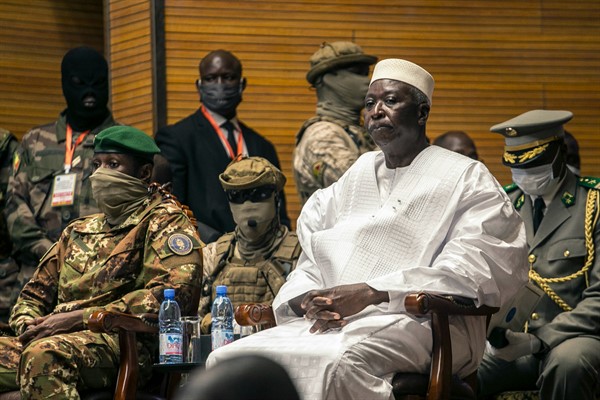The United States has mostly avoided in Africa the costly mistakes it made in Afghanistan and Iraq. If that is to continue, a good understanding of internal developments and issues in African countries will be crucial. Until now, the United States’ primary concern in Mali has been the jihadist insurgency in the northern and central parts of the country. A secondary priority was the promotion of democracy, which translated into an emphasis on regular, credible elections. With the military coup this summer—Mali’s second in less than a decade—and with mounting attacks by jihadists, that policy is not working. The current crisis in Mali, then, will be a test of American diplomatic sophistication.
Before its earlier coup in 2012, which soldiers launched over their displeasure with the government’s handling of the Tuareg rebellion in northern Mali, the country had been holding seemingly credible elections for decades, making it a “poster child” for representative government in Africa. But in many transitioning democracies, elections are not so much an expression of popular will as they are an exercise designed to legitimize elite exercise of political power, and Mali was no different. The paradox is that Washington’s preoccupation with elections does not necessarily lead to durable democratic institutions or the rule of law, in Mali or elsewhere.
Former President Ibrahim Boubacar Keita, for instance, was ostensibly freely elected in 2013, to restore democracy after the previous year’s putsch. The presumption among many international observers now is that he was overthrown by the military in August, contrary to the will of the people. But in reality, Keita’s ouster was preceded by over two months of massive anti-government demonstrations, led by a coalition of civil society groups and a charismatic imam, Mahmoud Dicko. Protesters, having raged against the venality of self-serving elites, cheered the military officers that overthrew Keita’s government when they paraded through the capital, Bamako. For the time being, the ruling junta appears to have popular support.

